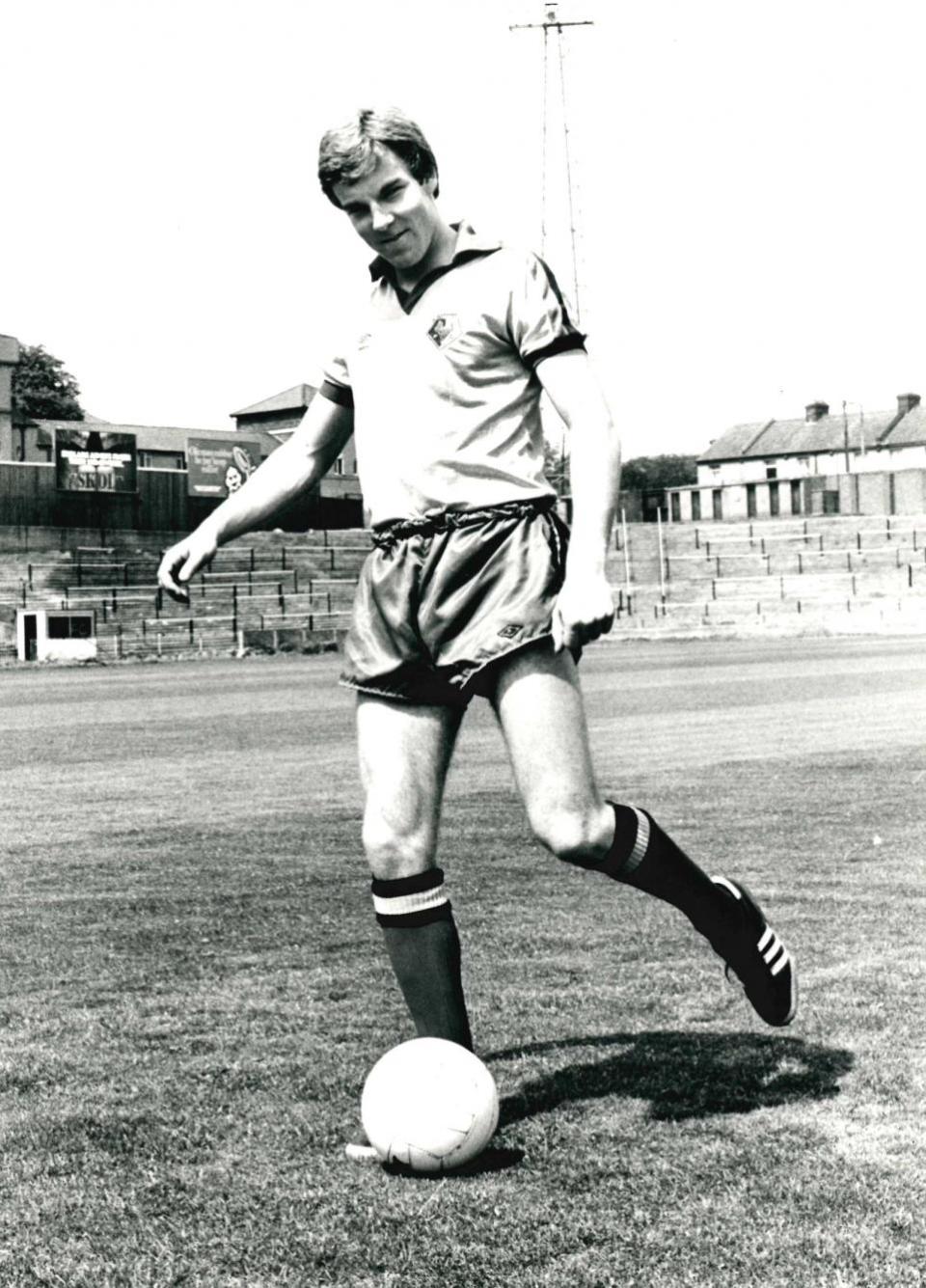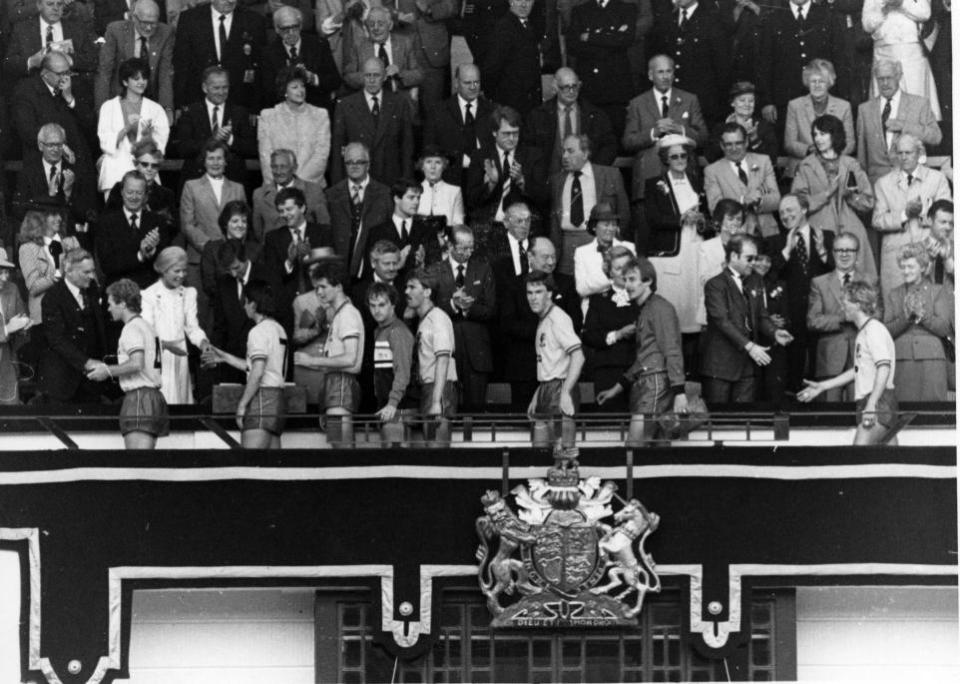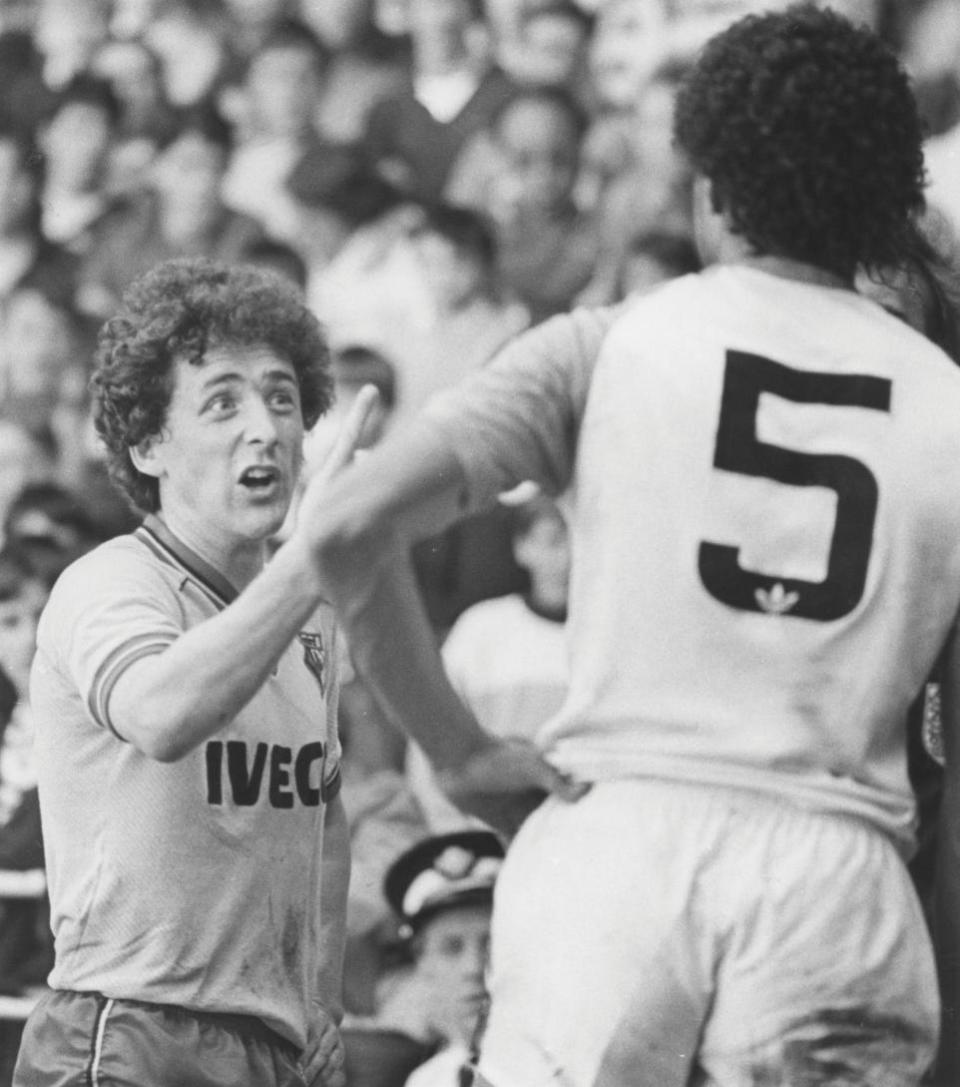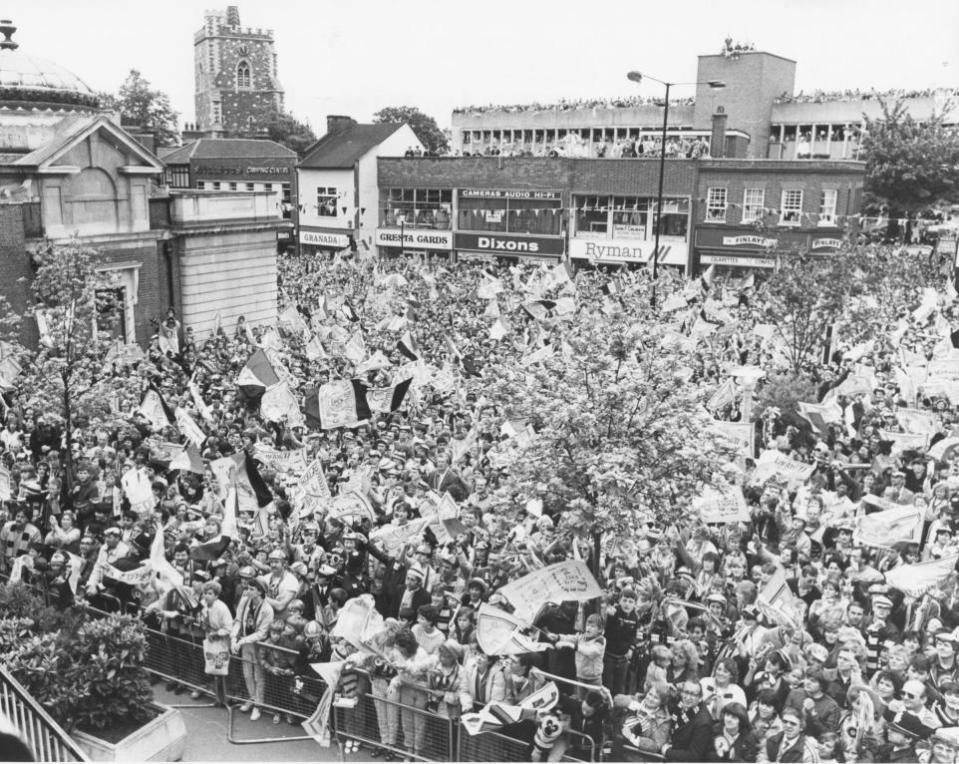Forty years have passed and some memories may still be painful, but Kenny Jackett is philosophical about the outcome of the 1984 FA Cup final.
“They had a lead on the day,” thought the Watford legend as he reflected on May 19, 1984, when the Hornets were beaten 2-0 by Everton in their first appearance in football’s showpiece event at Wembley Stadium.
“Everton were a top team,” said the 62-year-old former midfielder, who made 428 appearances for the club. “We had really good games against them, we always went for it, but overall I thought they always just outpaced us.
“We beat them 2-0 when we first came into the First Division, but I knew some of their lads very well, Kevin Ratcliffe and Neville Southall etc, and they said they knew you go for it and that you have good skills. attackers, but we always imagine that we score one more than you.
“In terms of playing, I think they had a bit more experience. We couldn’t get Barnes and Callaghan in the game enough, which was a big part of our game, and it was fair to them that they didn’t let us either.

The midfielder rose through the ranks at Watford and became a club legend (Image: Watford Observer)
Howard Kendall’s side were already 1-0 up after 37 minutes through Graeme Sharp’s goal, when the most controversial and talked-about moment of the match came six minutes into the second half.
Steve Sherwood was stretching when he faced a Gary Stevens cross and was hit by the defiant Andy Gray, causing the Hornets goalkeeper to lose his grip on the ball as it fell over the line.
Referee John Hunting allowed the crucial second goal to be upheld, but Jackett still believes Everton were the better side on the day.
He said: “Although the second goal was a foul, I definitely still think they had the lead and we couldn’t get our normal play and rhythm going.
“We had had several games against them in which we created a lot of chances by winning, losing or drawing, scoring a lot of goals, that was a big strength of ours. It was a team that was focused on attacking, but we couldn’t get our game going and we were denied that.
“The second goal was difficult to take, but as painful as it was, they had the lead that day.”


The Watford-born one-club man who would go on to coach and manage the team he had watched as a boy. Jackett had played in every round during the cup run but missed the semi-final win over Plymouth Argyle with a knee injury.
“I was so happy we got through it,” he said 40 years later with a hint of relief in his voice. “It’s frustrating when you have no control over it, but I was so happy.
“It was a tight match but I was so happy we got through it and then I thought I had a chance to play in the final because they don’t happen that often.
“I think it was maybe a little bigger then for the FA Cup than it is now. I know it’s still big but it was almost above the league at that period and before so to get there with the journey we had been on it was a reflection of how far the club had come compared to lower divisions.
“Every season was something new, something higher and something more, and you can’t get any further than going to Wembley in the cup final.”
That semi-final took place on April 14, a month and five days – and seven league matches – before the cup final was to be played.


The flare-up that led to Wilf Rostron missing the cup final (Image: Watford Observer)
That takes a lot of time, and a lot of football, for things to change – and in the fourth of those games, the Hornets, and one player in particular, suffered the cruelest of blows.
A 2-1 win at Luton Town would normally be cause for great celebration, but in the 40th minute Wilf Rostron was on the receiving end of a tackle from Paul Elliott. A tangle of legs and pushing and shoving ensued, but most observers expected the players to escape after a talk from Roger Milford. However, the referee had other ideas and sent both away. Watford’s captain was suspended for the cup final.
“I remember Graham absolutely going for the referee and then not really looking like him,” Jackett recalls.
“Missing Wilf was a big thing for us, I really felt for him because he was a big part of the team and a really good player. It was also a difficult situation for him because it was a controversial broadcast.”
As well as being without a captain, Jackett felt the time before the final was not helping Watford.
“It actually took too long, if I’m honest,” he said. “Maybe when you’re in the middle of the big games you can slow down a little bit, but it took a long time.
“You probably think about it too much, you’re looking forward to the game and although it’s exciting, there was a long build-up and it was hard to really stomach it.”
It may have been a long time coming, but the former Millwall, Wolves and Portsmouth manager admitted it was still a special feeling as a player waking up to the cup final.
“It’s great, the whole build-up, the bus journey to Wembley, although I think we only stayed local,” he said. “Seeing the supporters was the best part. What did it mean for people to be able to go because there was excitement in the city for a month, let alone a week, let alone a day.”


The amazing scenes in Charter Place the day after the Wembley final (Image: Watford Observer)
Although the day ended disappointingly, reaching the final is widely regarded as the pinnacle of that golden era in the club’s history when Graham Taylor led the Hornets from the Fourth Division to second place in Division One, to Europe and to Wembley .
Jackett does not disagree with the assessment that reaching the cup final was the highlight, but views the achievements of which he played a key role in a broader sense.
“There are many clubs that can organize a cup match, but we have been successful for a number of seasons,” he said. “I think it’s a big achievement for any club if you do that. That kind of consistency is hard to achieve.
“During that period we had consistent results in the first half of Division One, similar to what happened recently when Watford played in the Premier League for six years and reached the cup final.
“The first round when we played it [the cup final] was and felt like the pinnacle of it, but in terms of achievements I would say the whole period of promotions, second place behind Liverpool the year before, the cup final and the European run – there’s a lot in there over a long period of time. period of time.
“It shows you the people at the top, and the manager in particular… the manager was good. He was very, very good.
“As fantastic as Elton John’s support was, we couldn’t have done it without Graham’s decisions and secondly his drive – it was incredible during that period. He was responsible for that period.”